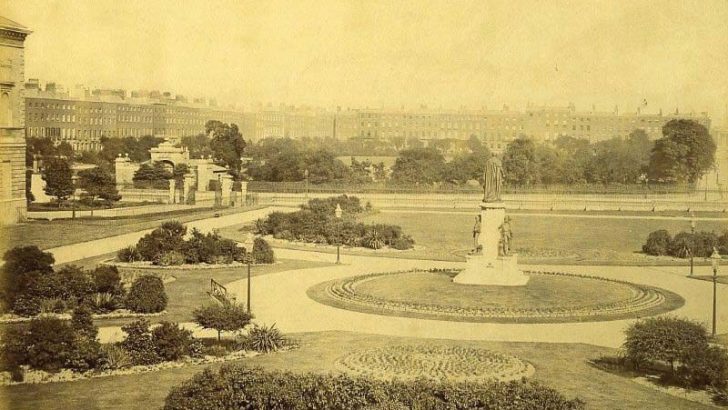Northern Ireland 1921–2021: Centenary Historical Perspectives Edited by Caoimhe Nic Dháibhead, Marie Coleman and Paul Bew (Ulster Historical Foundation, €19.99/£16.95)
Ireland was never rigorously partitioned like Germany, Cyprus or Korea. Churches, sporting and cultural organisations continued to operate island-wide. Since the peace process and the Single European Market, any hard physical border is gone. Ireland’s history is not susceptible to hard borders either.
The Ulster Historical Foundation (UHF) helps achieve a rounded view of Irish history, documenting amongst much else people and developments that led a Protestant majority in the province to insist on remaining part of the UK and not of an independent Irish State. Three counties were let go, with “not enough lifeboats to go round”.
One invaluable reference work is the six-volume history and biographical History of the Irish Parliament 1692-1800, edited by the late Dr Edith Johnston-Liik, the cost of publishing which was co-financed by the UHF and the Irish Government.
Centenary
This present volume, marking the centenary of Northern Ireland, is the initiative of the Centenary Historical Panel established by the Secretary of State in 2020.
It consists of 23 well-illustrated essays by professional historians and researchers aimed at the broader reading public. It is divided into two parts, the first being a distilled account of Northern Ireland’s troubled formative years, the second part being snapshots of life there since.
A benefit of the centenary has been to integrate Northern Ireland’s origins into a broader narrative, not just on this island, but across post-First World War Europe. The outbreaks of violence could be as acute as anywhere else across Ireland, but thankfully well below the levels experienced in Continental Europe.
Despite horrific incidents, full-scale sectarian civil war was avoided, though not the trauma of population displacement from both parts of the island. Nationalist Ireland underestimated and little understood the strength and durability of Ulster unionism, while unionists during the Stormont years underestimated the long-term difficulty of containing a one-third minority that they had made no attempt to reconcile.
One essay by David Torrance, taking issue with my father Nicholas Mansergh and other historians, plausibly contests the notion that Northern Ireland seceded from the Irish Free State, or that it was ever part of it under the Treaty, even for a single day.
The only problem is that, on British legal advice, the NI Parliament passed a resolution on December 7, 1922, the day after the Irish Free State came into being, praying that its powers “shall no longer extend to Northern Ireland” (my italics). The single day that all Ireland was notionally part of the Free State was the basis of the right to Irish citizenship so valued by northern nationalists.
One principle that the British Government remains determined to uphold in Northern Ireland is devolution, now on a power-sharing basis, though always with a Westminster override button, recently deployed, as related here, with the Executive in abeyance, to impose the provision of abortion services and the redefinition of marriage.
Conflict
The awfulness of recent conflict is not frontally addressed. Recent controversies, such as Brexit, are avoided. There is scant discussion beyond living standards of the relative position of the Northern Ireland economy today, hugely changed from 100 years ago, when Belfast was the industrial capital of Ireland.
The volume avoids predictions. Northern Ireland’s existence for 100 years cannot be denied, and, from any impartial perspective, it had achievements as well as shortcomings. Its key failure is that it remains so strongly contested. The danger for nationalism is that over-confident false steps caused by impatience for unity could prejudice irredeemably the chances of its achievement.



